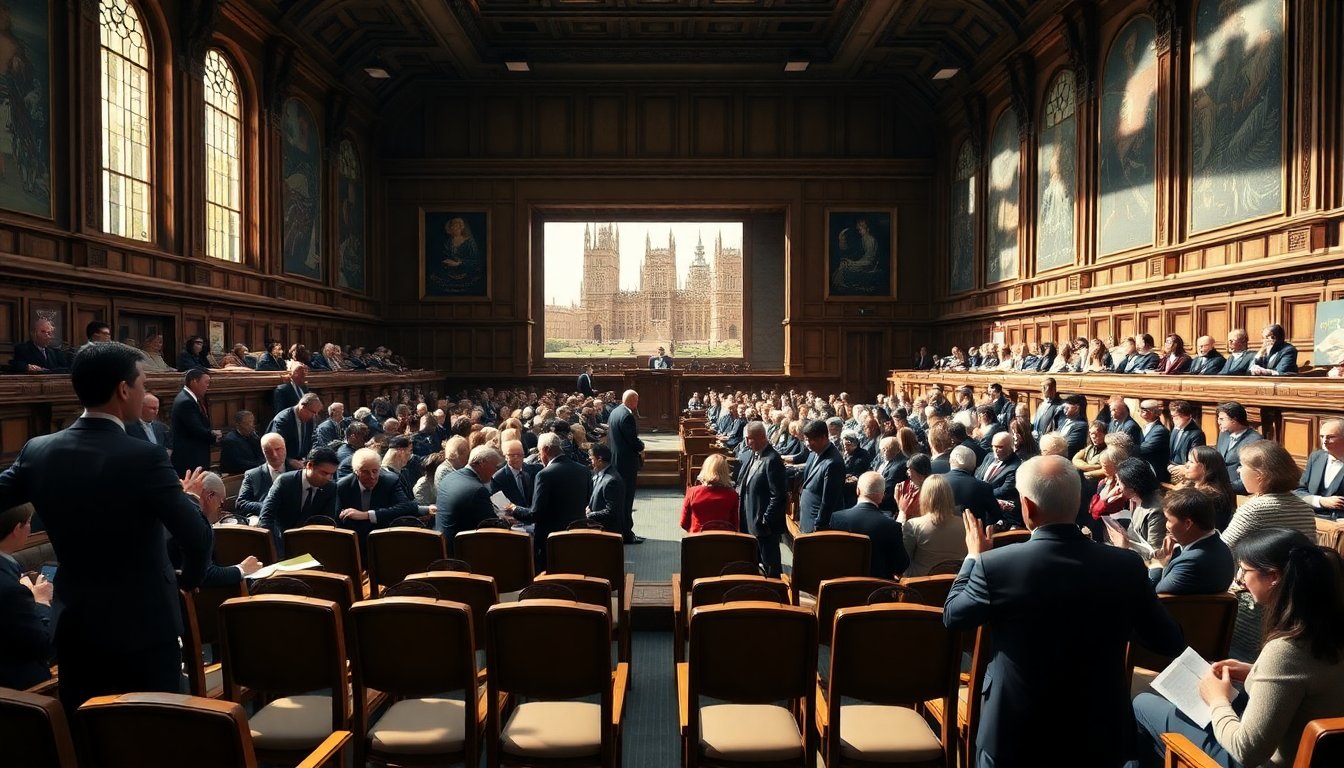Table of Contents
In the current political landscape of the UK, Keir Starmer, the leader of the Labour Party, is facing scrutiny over his leadership viability. Recent Prime Minister’s Questions (PMQs) have revealed significant tensions within the party, as Starmer’s allies express concerns about his ability to maintain control amid rising dissent.
During the latest PMQs, opposition leader Kemi Badenoch seized the opportunity to challenge the Prime Minister’s authority. Starmer’s political future dominated discussions, overshadowing other pressing issues, including controversies surrounding the BBC. Badenoch aimed to exploit the apparent divisions within Labour, providing a platform for criticism.
Leadership challenges and speculation
Reports have surfaced suggesting that Starmer’s leadership might be at risk, with sources indicating that Wes Streeting, the Health Secretary, could potentially lead a revolt against him. Speculation grew following briefings from No 10 insiders, who claimed that Starmer was preparing to fend off any challenges to his leadership. This situation raises questions about the internal dynamics of the Labour Party and the potential consequences of a leadership challenge.
Streeting’s denial and political maneuvering
In response to the swirling rumors, Streeting has categorically denied any intentions to oust Starmer, emphasizing his commitment to his role as Health Secretary. His spokesperson stated that Streeting is focused on addressing crucial issues, such as reducing waiting lists and enhancing NHS services. However, this denial has done little to quell the growing unease within Labour ranks, as reports suggest a faction of MPs is increasingly dissatisfied with Starmer’s leadership.
The backdrop to this political drama includes concerns about the upcoming budget, which some Labour MPs fear could lead to unpopular tax increases, jeopardizing the party’s commitment to its manifesto. Streeting’s allies reportedly indicated that approximately 50 frontbenchers might resign if the budget fails to meet expectations. The implications of such actions could be devastating for Starmer’s leadership.
Political fallout and public perception
The political atmosphere surrounding Starmer is further complicated by public perceptions and media portrayals. Many critics argue that the Prime Minister’s office has adopted a defensive posture, attempting to stave off challenges by targeting loyal cabinet members. This approach has been criticized as counterproductive, with some insiders claiming that it resembles a circular firing squad, ultimately weakening Starmer’s position.
Unity versus division
During PMQs, Starmer attempted to project an image of unity within his party, declaring that Labour was a cohesive team working towards shared goals. However, this assertion was met with skepticism, particularly from opposition benches, who responded with derision. The disconnect between Starmer’s claims and the reality of internal party tensions raises questions about his leadership effectiveness and future.
A notable moment during the session occurred when Starmer was challenged by Badenoch about the alleged toxic culture within Downing Street. In an effort to distance himself from potential fallout, Starmer condemned any attacks on his cabinet members, specifically defending Streeting. Nevertheless, this defense appeared lukewarm and did little to quell the perception of discord within his leadership team.
Navigating uncertainty
As the political landscape continues to evolve, Starmer faces a critical moment that will define his tenure as Labour leader. The combination of internal dissent, external challenges, and the looming threat of a leadership challenge creates a complex environment. Starmer’s ability to navigate these turbulent waters will be paramount in determining the future of his leadership and the Labour Party as a whole.
Given the stakes, Starmer must address the immediate concerns within his party while reassuring the public of Labour’s commitment to its values and promises. The coming weeks will be crucial in shaping the trajectory of his leadership and the party’s prospects amid mounting pressures.


